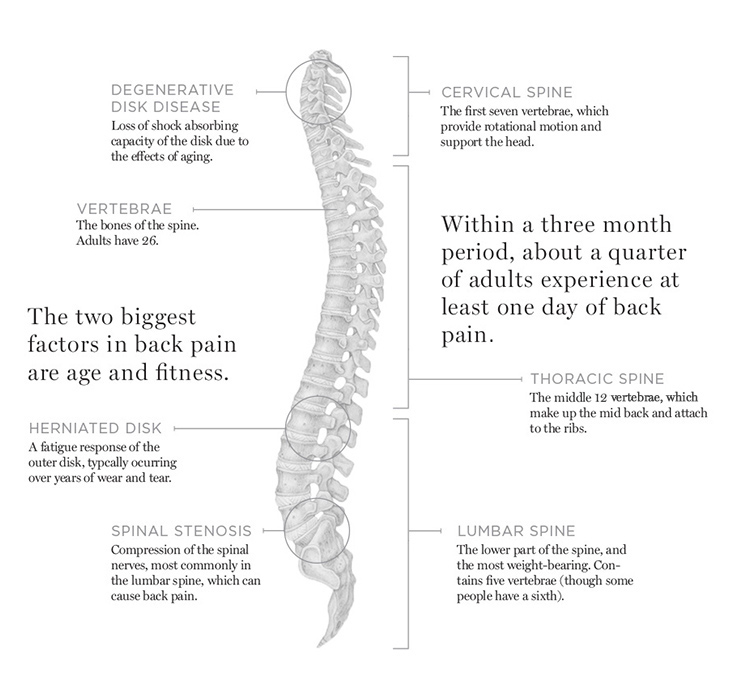As a back specialist with two decades of experience, Dr. Jason Gordon explains how spinal health is affected by the positions in which we sleep.
What is the best position for sleep? / The worst position?
If you can, you should always sleep on your side. Sleeping on your back is okay but not great. You should try never to sleep on your stomach.
Why is sleeping on your stomach so bad?
When you sleep on your stomach you have to turn your head to breathe. This puts a twist in your neck creating pressure and stress on the vertebra, which can lead to neck stiffness and problems. Furthermore, gravity is going to pull down on your organs and stretch out your abdominal wall.
What about sleeping on your back?
The spine has a lot of curves to it, and when you lay on your back it’s hard for the spine to straighten out. Sleeping on your back also puts your neck in a vulnerable position, so you need a good supportive pillow under the neck when you sleep on your back.
Why is sleeping on your side the best position?
Side sleeping is the best and here’s why. It’s the only position that allows the spine to straighten out. There’s also very little pressure on the spine when you lay on your side. If you sleep in a fetal position, it takes even more pressure off your lower back.
Do you recommend using a pillow between the legs?
Yes — especially for patients who are pregnant. For anyone whose got sharp pain shooting down their legs, one of the first recommendations is to sleep on your side, in a fetal position with a pillow in between your legs.
According to medical research, over 80% of us will experience back pain at some point in our lives. The chairs we sit in, the shoes we wear, the sports we play, the stress in our lives — all contribute to back pain. Regardless of your sleep position, the last thing you need is a mattress that doesn't support your spine, causing your back to have to work while you sleep. Even when you’re in bed, if your spine isn’t in proper alignment, back muscles are compelled to contract with support. So unfortunately, back muscles don’t necessarily go to sleep when you do — they stay tense if your mattress doesn’t provide adequate, continuous support.
Does your mattress support your spine in a natural relaxed position? Is it too firm? Too soft?
Become an Informed Sleeper and learn more by clicking here.

